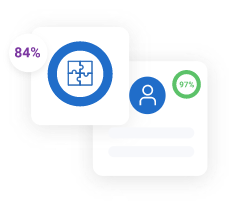- Application
- Information
Apply through Brive
We are official partners! Complete your application for free and earn benefits!
Free review on your application |
1:1 counselling by certified consultants |
Higher acceptance rate on your top choices |
Duration
2 Years
Language
English
Program Description
Facing the rapid structural reforms in society and industry head on, KUAS’ Graduate Program of Engineering nurtures engineers with superlative skills and knowledge to become international leaders in the field of science and technology in the 21st century. We have seen rapid changes to our world in recent times, with advancements in technology creating markets that did not exist in the past - including robotics, drones and electric cars.
Furthermore, industry in the future will be supported by systems based on Artificial Intelligence (AI) and Big Data, and be inter-connected through the Internet of Things (IoT). This has resulted in a strong demand for a new approach in educating the engineers of the future, as engineering is the foundation of industry and key to the emergence of various new disciplines.
Conventional learning commonly follows an “analytical” approach in which one studies and deepens one’s knowledge in a particular academic field in order to explore the inner nature of phenomena and to discover basic truths. KUAS’ graduate programs aim to transcend such conventional ways, moving towards a “synthetic” approach where one establishes new systems and concepts based on multiple truths from different academic disciplines.
Our graduate programs thus aims to educate synthetic engineers as part what we believe is a new global paradigm. The mission of our engineering department and graduate school is to cultivate thinkers able to create new technology platforms and the academic fields that will sustain those platforms for decades to come.
1st Year - 1,202,640 Japanese Yen
2nd Year - 1,000,000 Japanese Yen
The fees above include the admission fee, accident insurance, and other administrative fees.
Furthermore, industry in the future will be supported by systems based on Artificial Intelligence (AI) and Big Data, and be inter-connected through the Internet of Things (IoT). This has resulted in a strong demand for a new approach in educating the engineers of the future, as engineering is the foundation of industry and key to the emergence of various new disciplines.
Conventional learning commonly follows an “analytical” approach in which one studies and deepens one’s knowledge in a particular academic field in order to explore the inner nature of phenomena and to discover basic truths. KUAS’ graduate programs aim to transcend such conventional ways, moving towards a “synthetic” approach where one establishes new systems and concepts based on multiple truths from different academic disciplines.
Our graduate programs thus aims to educate synthetic engineers as part what we believe is a new global paradigm. The mission of our engineering department and graduate school is to cultivate thinkers able to create new technology platforms and the academic fields that will sustain those platforms for decades to come.
1st Year - 1,202,640 Japanese Yen
2nd Year - 1,000,000 Japanese Yen
The fees above include the admission fee, accident insurance, and other administrative fees.
Entry Requirements

Are you eligible to apply?
Sign up, check the entry requirements, and find out your compatibility with the program.
Fields of Study
Curriculum
Need help applying to this program?
Schedule a free 20-minute counseling session today!